A Simple Kindness Across Cultural Boundaries
In Israel, people for the most part live in communities that are more or less homogeneous. In other words, Jews live among other Jews, and Arabs live among other Arabs. The homogeneity gets even more particular, as Ultra-Orthodox live among Ultra-Orthodox, National Religious live among National Religious, Sephardic Jews live among Sephardic Jews, and so on. Of course there are exceptions, especially in larger cities, but this is my general impression. Consequently, many people have very little interaction with other people who are different from themselves, unless they leave the neighborhood for one reason or another. One exception to this rule is the pharmacy.
There is an interesting demographic phenomenon here in Israel: although Arab Israelis comprise approximately 20% of the general population, the majority of pharmacists and pharmacy students are Arabs. Hence, even in predominantly Jewish neighborhoods, it is quite likely that the pharmacists are Arab. Indeed, this is the case in the predominantly Jewish neighborhood in which I live.
Around 8-9 months after I moved to Israel, a few days before the holiday of Passover, I went to the pharmacy to pick up a prescription. The pharmacist was a young Arab woman, a religious Muslim, wearing a hijab. She was very courteous as she greeted me in fluent Hebrew. I showed her the prescription and she then went to the cabinet and found the medicine. As she was handing it to me, she hesitated and then withdrew the medication. I was startled initially. She then said, “I know your holiday is starting in a few days. You don’t eat chametz (any derivative of leavened bread) and I’m not sure if this medicine is certified kosher for Passover.” I hadn’t even really thought of that problem since the medication isn’t food, and I wasn’t really going to be eating it but rather swallowing it whole. Nonetheless, she thought of this problem and she then proceeded to look in a directory near the cash register that listed which medications were and were not certified kosher for Passover. She then went to the back room and re-emerged a few moments later with the same medication but from a different manufacturer. With a sweet smile and a gentle demeanor, she handed me the new medication and said, “Here, this one is certified kosher for Passover. Have a happy holiday!”
I was blown away. She did not need to go out of her way for me. Simply stated, this was an unsolicited act of kindness. But it wasn’t only her actions, or even her words that made such an impression upon me. It was her demeanor and the expression on her face. What she was declaring without even saying so explicitly is, “we may be different in so many ways, but we also share a lot in common, and I choose to focus on the latter.”
I thanked her on the spot for the medication, and for her act of kindness. But I would like to thank her again now, more than a year later, and publicly, for something much larger than a box of pills and for her small act of kindness. I want to thank her for showing me that by treating other people with respect and dignity, and by focusing on our commonalities rather than our differences, we can peacefully coexist, and through one interaction at a time, transform our world into a better place.
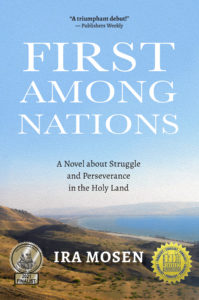 For more unexpected stories about life in Israel, read Ira Mosen’s debut novel, First Among Nations. It will be published on August 11, 2020.
For more unexpected stories about life in Israel, read Ira Mosen’s debut novel, First Among Nations. It will be published on August 11, 2020.
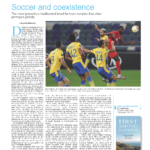
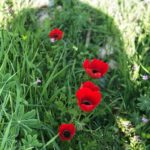
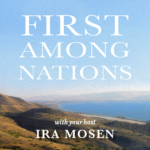
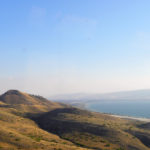

Great story. The other place of equality is the dialysis unit in Jerusalem I’ve visited where males, females, Jews and Arabs, all of varying degrees of religious observance sit next to each other in the dialysis chairs. Their common condition brings them together.
That’s a really nice story!
Thank you Yoni!
That is so true! I would add that health-care generally is the great equalizer. I worked in an Israeli Hospital for several months and I can testify that there were absolutely no distinctions made regarding the ethnicities or religions of care givers, patients, families. None! There are many amazing doctors, nurses, etc. in Israel of all faiths. I can recall many anecdotes of collaboration and peaceful coexistence. Publicizing and stimulating conversations regarding this phenomenon is precisely why I wrote my book and started my podcast and blog. So, thank you Jeff!